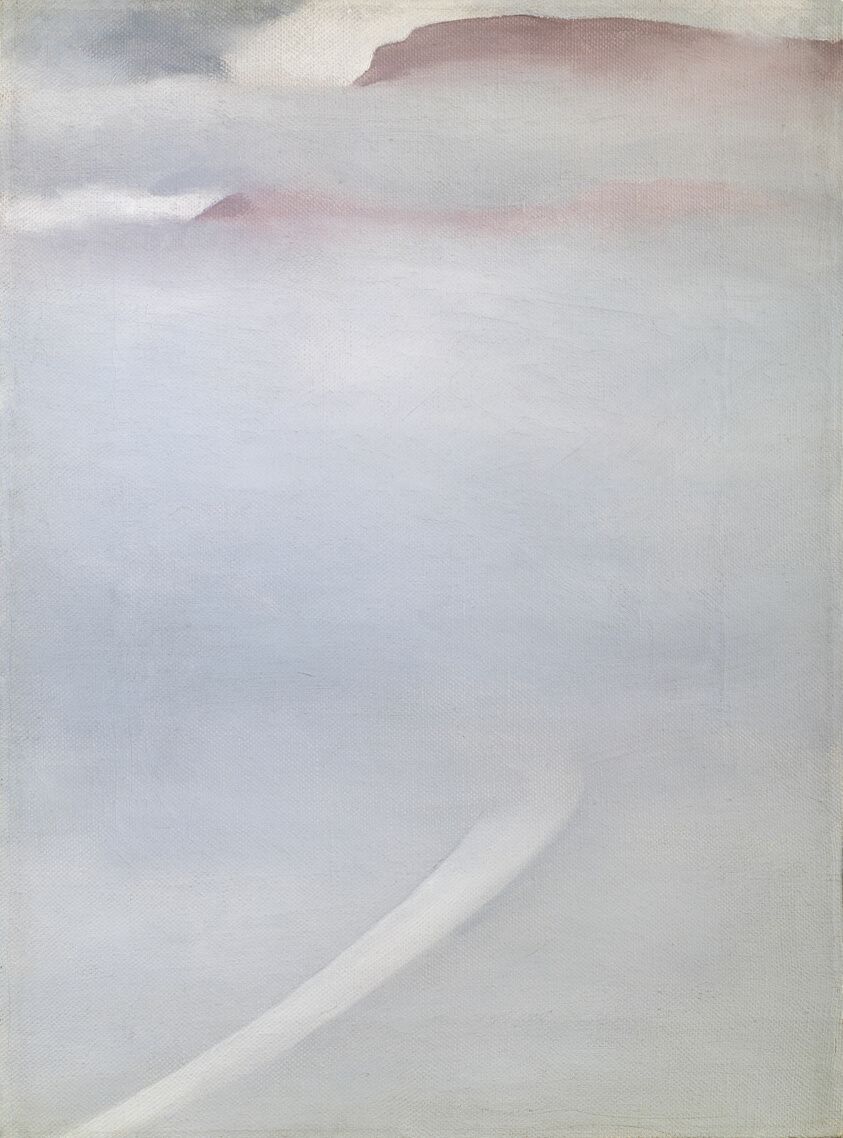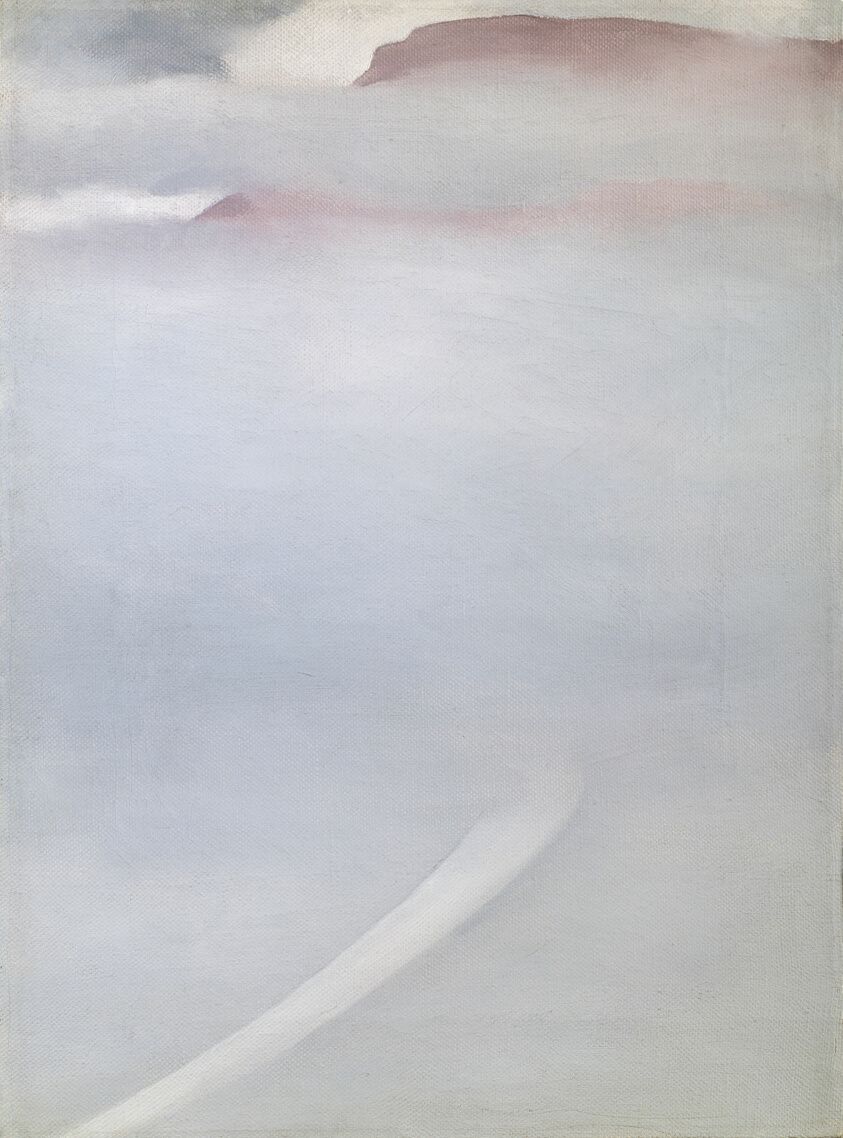Georgia O'Keeffe, "Road - Mesa with Mist" (1961)
How bright, how textured, obscurity is.

I’m struck by an immensity of bluish gray. Not exposed canvas, but puffier. Cloudy and cotton-like, weighty enough to hold plenty of light and pronounced shadow.
There’s a mesa, standing regally atop this mass. Partially covered by a wispier mist, one seeming to belong to the mesa only.
How bright, how textured, obscurity is.

Toward the bottom of the canvas, within the mass of mist, there’s a slash of white. The gleam, the apparition, of a road. And I wonder, given the curve of the road, if the mist has also curved to “fit” the mesa.
That I’m not just staring at a color, a texture, an object. I’m looking at an ornament, a dress of crystals, meant for this landscape. A painter merely brings attention to the immensity of actual artistry.
***
To see the landscape this way is not simply a product of genre. It’s personal, just as the way we grow and attach to places is personal. I’m thinking of moving from Dallas, a city which, objectively speaking, has given me very little. I have a few contacts, been presented a few opportunities to give back, but have certainly failed to build a life here.
Some might say the failure is all mine, but experience has taught me otherwise. I’ve seen how others build and prosper. It takes a flood of gifts, a flood of well-wishes, opportunities, and help to make it. When one person believes in you, you don’t throw that away, but that doesn’t become “if you build it, they will come.” It is, rather, a recognition of the spirit that gets us to try in the first place. And move on when the time is right.
All the same, I’m staring at that blue gray mass of mist, and thinking of how much depends on the familiar. How the familiar is present, beloved, and obscure. This part of Texas is familiar to me. I can safely say I do not understand what I am giving up, should I choose to move on.
***
The United States of America, one might say, is entirely the testimony and the failures of Jefferson. Here he is, in an oft-quoted letter to William Ludlow, with some thoughts for O’Keeffe and me:
“I am 81. years of age, born where I now live, in the first range of mountains in interior of our country. and I have observed this march of civilisation advancing from the sea coast, passing over us like a cloud of light, increasing our knolege and improving our condition insomuch as that we are at this time more advanced in civilisation here than the seaports were when I was a boy. and where this progress will stop no one can say.”
I confess I am jealous. To live in the place where you were born seems like such a luxury to me. To be accepted and prosper and be allowed to call where you are home. And then, Jefferson’s optimism: “I have observed this march of civilisation advancing from the sea coast, passing over us like a cloud of light.”
Civilization, like a “cloud of light,” passes over us from coast to coast. We will progress, we will prosper. The frontier knows no end.
***
I can’t help but feel that O’Keeffe’s vision and my life have something else to say. There are clouds of light that do not mark progress, but just are. A landscape that is an enormity, a mystery. Wise observers refuse a solution. The mesa and the mist are beautiful; people count themselves lucky to have seen them; they must be sacred. They, and they alone, are life-giving.
As for me, I’m thinking about that apparition of a road dissolving into the mist. How I used to think of life as getting from point A to point B. As making progress.
I think the road and the mist have something more to say. Something more profound. Not progress, but depth is the reason to travel the road.
